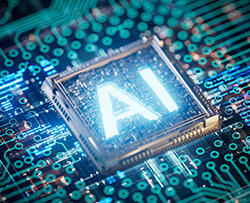
Artificial intelligence (AI) is transforming industries at a rapid pace, providing opportunities to optimize operations, improve customer experiences and drive innovation. However, as AI becomes increasingly integrated into critical processes across industries, concerns about its security, ethics, and fairness have become more pronounced. Addressing these challenges requires more than technological advancements or regulatory frameworks; this calls for a proactive approach that puts community engagement at the forefront of AI management.
In this article, we explore how local initiatives and open source projects are making progress in establishing security practices and ethical standards for AI. These initiatives have proven transformative, not only because they advance technical development, but also because they promote collaboration, transparency and diversity. These elements are essential for responsible innovation in AI. For IT leaders navigating this evolving landscape, understanding the value of community engagement is essential to harnessing the potential of AI safely, ethically and effectively.
As AI applications grow, concerns about unintended consequences, biased decision-making, and opaque algorithms are increasingly coming to the forefront. For organizations deploying AI, these risks are not just ethical dilemmas: they represent potential liabilities that can undermine stakeholder trust and expose companies to regulatory sanctions.
Establishing clear ethical guidelines and security standards can help mitigate these risks, ensuring that AI systems are transparent, fair and aligned with societal values. By prioritizing ethical considerations and robust security protocols, organizations can foster trust, strengthen accountability, and create AI solutions that benefit everyone. Ethical standards are not just bureaucratic hurdles, they are the cornerstone of effective AI governance. These standards can provide businesses with a competitive advantage because customers are more likely to trust and adopt AI solutions designed to be fair and unbiased.
Trust is a critical factor in the widespread adoption of AI technologies. As AI continues to play a larger role in everything from financial decision-making to health diagnostics, the need for transparent systems has never been greater. In many ways, open source AI projects are a key way to build this trust, particularly around AI security and ethics. Open source initiatives allow diverse stakeholders to inspect, audit, and contribute to code and models, ensuring that the resulting systems are more robust, ethical, and inclusive.
Open source projects have become essential for the responsible development of AI. While there is no shortage of open source initiatives and projects in this area, the following two are worth mentioning:
MLCommons is an AI engineering consortium founded on a philosophy of open collaboration to improve AI systems. This is a core engineering group made up of people from academia and industry. The consortium is focused on accelerating machine learning through open source projects that address critical areas including benchmarking, security, and accessibility. Some of the remarkable work accomplished by their AI Risk and Reliability The group includes the MLCommons security taxonomy and its security benchmarks. Their taxonomy is currently used by prominent template providers like Meta And Google.
MLCommons has also made significant contributions to the standardization of AI benchmarks, which helps evaluate the performance of various AI models against safety and reliability standards. The criteria defined by MLCommons serve as reference points for developers, allowing them to evaluate how well their models align with established security and ethics guidelines. The inclusive and collaborative nature of MLCommons helps ensure that these benchmarks are developed with a wide range of stakeholders, making them more applicable and reliable across different domains and industries.
The Coalition for Secure AI (CoSAI) is another notable open ecosystem of AI and security experts from leading industry organizations. They are dedicated to sharing best practices for secure AI deployment and collaborating on AI security research and product development. Their AI risk governance workstream works to develop


